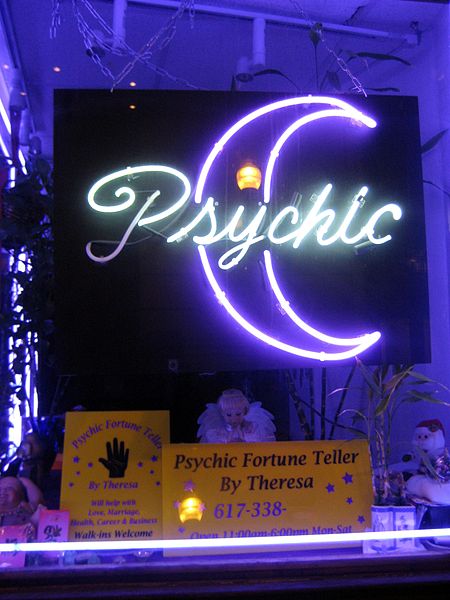Fortune telling is the unproven spiritual practice of predicting information about a person's life. The scope of fortune telling is in principle identical with the practice of divination. The difference is that divination is the term used for predictions considered part of a religious ritual, invoking deities or spirits, while the term fortune telling implies a less serious or formal setting, even one of popular culture, where belief in occult workings behind the prediction is less prominent than the concept of suggestion, spiritual or practical advisory or affirmation.
Gypsy Fortune-Teller (1841) by Taras Shevchenko
Storefront psychic fortune teller in Boston
A fortune-telling storefront on the boardwalk in Point Pleasant Beach, New Jersey
The screene of fortune here behold, fortune-telling game, c.1650–1750
A prediction or forecast is a statement about a future event or about future data. Predictions are often, but not always, based upon experience or knowledge of forecasters. There is no universal agreement about the exact difference between "prediction" and "estimation"; different authors and disciplines ascribe different connotations.
The Old Farmer's Almanac is famous in the US for its (not necessarily accurate) long-range weather predictions.
Asklepios and Hippocrates bookend the façade of the Royal College of Physicians of Edinburgh, statuary by Alexander Handyside Ritchie (1804-1870)






